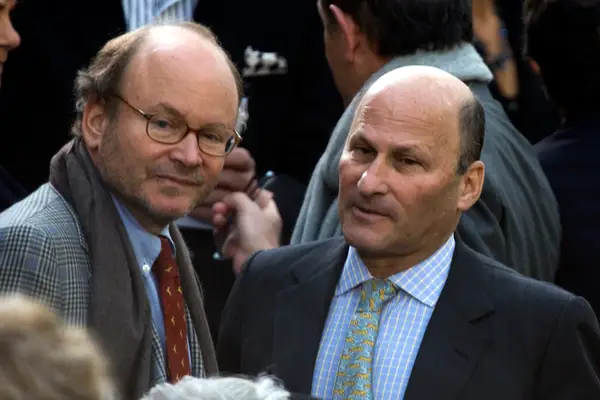Estimated Net Worth: $90 billion
Few family dynasties have been as closely associated with luxury and refinement as the Wertheimer family. As the custodians of Chanel, one of the most iconic fashion houses in history, the Wertheimers have played an instrumental role in preserving the brand’s legacy while steering it toward continued global success. With roots in both entrepreneurial ingenuity and a deep respect for tradition, the family’s influence spans nearly a century. This article explores their history, financial standing, and the enduring impact of their stewardship.
The Partnership That Started It All
The Wertheimer family’s involvement with Chanel dates back to the 1920s, when Pierre Wertheimer partnered with Gabrielle “Coco” Chanel to commercialize her revolutionary fragrance, Chanel No. 5. While Coco Chanel was the creative visionary behind the brand, Pierre Wertheimer brought the business acumen needed to turn her creations into global sensations. The partnership led to the founding of Société des Parfums Chanel in 1924, with Pierre providing the financial backing in exchange for a controlling stake.
This collaboration proved to be transformative. Chanel No. 5 quickly became a cultural phenomenon, celebrated for its sophisticated simplicity and innovative marketing. By the mid-20th century, Chanel was not just a perfume but a symbol of timeless elegance.

Surviving Turbulent Times
The Wertheimer family’s control of Chanel faced challenges during World War II, a period marked by Nazi occupation in France. Pierre Wertheimer, who was Jewish, fled to the United States, leaving the company in the care of trusted associates. During this time, Coco Chanel attempted to reclaim control of the brand, leveraging laws that targeted Jewish-owned businesses. However, Pierre had anticipated such moves and transferred ownership to a friend, ensuring the company’s continuity.
After the war, Pierre regained full control of Chanel, and the Wertheimer family’s relationship with Coco Chanel endured, albeit with tensions. When Coco relaunched her fashion house in the 1950s, it was Pierre and his brother, Paul, who financed her return, further cementing their role as stewards of her legacy.
he Expansion Under Alain and Gérard Wertheimer
In the latter half of the 20th century, leadership of Chanel passed to Pierre’s grandsons, Alain and Gérard Wertheimer. Under their guidance, the brand underwent a remarkable transformation. Recognizing the importance of heritage and exclusivity, the Wertheimer brothers focused on maintaining Chanel’s core identity while expanding its reach.
The acquisition of key suppliers, such as the atelier Lesage for embroidery and the milliner Maison Michel, ensured that Chanel could preserve the craftsmanship essential to its creations. They also invested heavily in advertising and brand storytelling, reinforcing Chanel’s mystique and allure.
Perhaps the most significant move came with the recruitment of Karl Lagerfeld in 1983 as Chanel’s creative director. Lagerfeld’s visionary designs revitalized the brand, blending its storied history with modern sensibilities. This bold strategy paid off, propelling Chanel to new heights of cultural and financial success.
A Financial Powerhouse
Today, the Wertheimer family’s fortune is estimated at over $90 billion, making them one of the wealthiest families in the world. Chanel itself remains a privately held company, owned entirely by Alain and Gérard Wertheimer. In 2022, Chanel reported revenues exceeding $17 billion, driven by strong demand for its fashion, accessories, and beauty products.
The family’s wealth extends beyond Chanel. They own a range of investments, including vineyards in Bordeaux, such as Château Rauzan-Ségla and Château Canon, which produce some of the world’s finest wines. This diversification reflects their long-term approach to wealth management and their commitment to excellence across industries.
Maintaining a Low Profile
Despite their immense wealth and influence, the Wertheimers are known for their discretion. Rarely granting interviews or making public appearances, they embody the understated elegance that Chanel itself represents. This low-key approach has allowed them to focus on the business without the distractions of celebrity or media scrutiny.
Their private lives remain largely out of the spotlight, with little known about their personal pursuits. What is clear, however, is their dedication to upholding Chanel’s legacy and ensuring its independence in an era of corporate conglomerates.
The Future of Chanel and the Wertheimer Legacy
As Chanel continues to thrive, the Wertheimer family faces the challenge of maintaining its relevance in an ever-changing luxury market. Sustainability and digital innovation are key areas of focus, with the company investing in eco-friendly initiatives and expanding its online presence. The recent appointment of Virginie Viard as creative director, following Karl Lagerfeld’s passing in 2019, signals a commitment to continuity and evolution.
The family’s stewardship ensures that Chanel remains true to its founding principles: timeless elegance, unparalleled quality, and a touch of audacity. Through careful management and a deep respect for tradition, the Wertheimers have positioned Chanel as a beacon of luxury for generations to come.
The Wertheimer family’s journey with Chanel is a story of vision, resilience, and unwavering dedication. From Pierre Wertheimer’s initial partnership with Coco Chanel to Alain and Gérard’s global expansion, the family has been instrumental in shaping the brand’s enduring success. As guardians of one of the world’s most iconic fashion houses, the Wertheimers exemplify the perfect blend of tradition and innovation, ensuring that Chanel remains a symbol of luxury and refinement for years to come.
